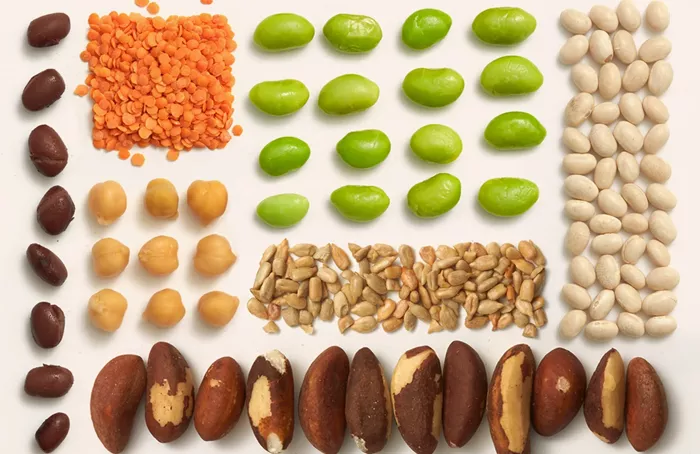In a move that could reshape the way Americans approach nutrition, the U.S. Department of Health and Human Services (HHS) recently unveiled its proposed changes to the 2025-2030 Dietary Guidelines. These guidelines, which are updated every five years, provide essential recommendations for maintaining optimal health, and this year, they are encouraging Americans to rethink their diets—particularly when it comes to protein sources.
Key Recommendations from the New Scientific Report:
Eat More Beans, Peas, and Lentils
The 2025 Dietary Guidelines Advisory Committee is urging Americans to significantly increase their intake of plant-based proteins, particularly beans, peas, and lentils. The committee suggests reducing the consumption of red and processed meats, which are high in saturated fat, in favor of these plant-based alternatives. Beans, peas, and lentils are not only nutrient-dense but also packed with fiber, contributing to heart health and helping to lower the risk of chronic diseases such as cardiovascular disease and diabetes.
For the first time, the report recommends moving beans, peas, and lentils from the vegetable food group to the protein food group to encourage more plant-based protein consumption. The updated protein food group hierarchy would now look like this:
- First: Beans, peas, and lentils
- Second: Nuts, seeds, and soy products
- Third: Seafood
- Last: Meats, poultry, and eggs
The idea is to make plant-based options the centerpiece of a healthy diet while still offering flexibility with animal-based proteins.
A More Inclusive and Flexible Approach to Healthy Eating
In a major shift, the guidelines are introducing the concept of “Eat Healthy Your Way.” This initiative emphasizes the importance of tailoring dietary recommendations to fit cultural preferences and individual health needs. Recognizing that health conditions like obesity, hypertension, and Type 2 diabetes disproportionately affect lower-income populations, the new guidelines encourage a more flexible definition of what constitutes a “healthy” diet.
The Benefits of a Plant-Based Diet
For many, the shift toward plant-based eating may seem daunting. However, health experts and advocates are quick to point out the numerous benefits that come with increasing plant-based foods in your diet. Research consistently links plant-based diets with a reduced risk of chronic diseases such as heart disease, Type 2 diabetes, and certain types of cancer. The rising popularity of plant-based diets is no coincidence; it’s supported by science and has been proven to enhance overall health and well-being.
“I’ve been a vegetarian for over a decade, and I’ve seen firsthand the positive effects of eating more plants,” said [Expert’s Name], a nutritionist and dietitian. “The proposed changes to the guidelines are exciting because they empower people to make healthier choices without feeling restricted by traditional dietary norms.”
Read more:
- Will Soy Milk Help With Hot Flashes
- Top 6 Protein Powder For Lean Muscle Female
- The 5 Best Protein Powder For Pregnant Ladies


